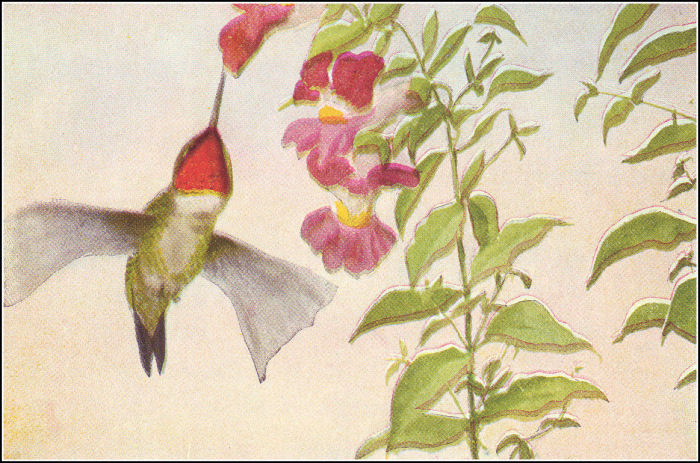
The Brook
|
I come from haunts of coot and hern, I make a sudden sally, And sparkle out among the fern, To bicker down a valley. By thirty hills I hurry down, Or slip between the ridges; By twenty thorps, a little town, And half a hundred bridges. Till last by Philip's farm I flow To join the brimming river; For men may come, and men may go, But I go on forever. I chatter over stony ways, In little sharps and trebles, I bubble into eddying bays, I babble on the pebbles. With many a curve my banks I fret By many a field and fallow, And many a fairy foreland set With willow-weed and mallow. I chatter, chatter, as I flow To join the brimming river, For men may come, and men may go, But I go on forever. I wind about, and in and out, With here a blossom sailing, And here and there a lusty trout, And here and there a grayling, And here and there a foamy flake Upon me, as I travel, With many a silvery water-break Above the golden gravel, And draw them all along, and flow To join the brimming river, For men may come, and men may go, But I go on forever. I steal by lawns and grassy plots, I slide by hazel covers; I move the sweet forget-me-nots That grow for happy lovers. I slip, I slide, I gloom, I glance, Among my skimming swallows; I make the netted sunbeam dance Against my sandy shallows. I murmur under moon and stars In brambly wildernesses; I linger by my shingly bars, I loiter round my cresses; And out again I curve and flow To join the brimming river; For men may come, and men may go, But I go on forever. |
![[Illustration]](http://www.gatewaytotheclassics.com/gold/books/winter/aesop/winter_aesop_zpage098.gif)